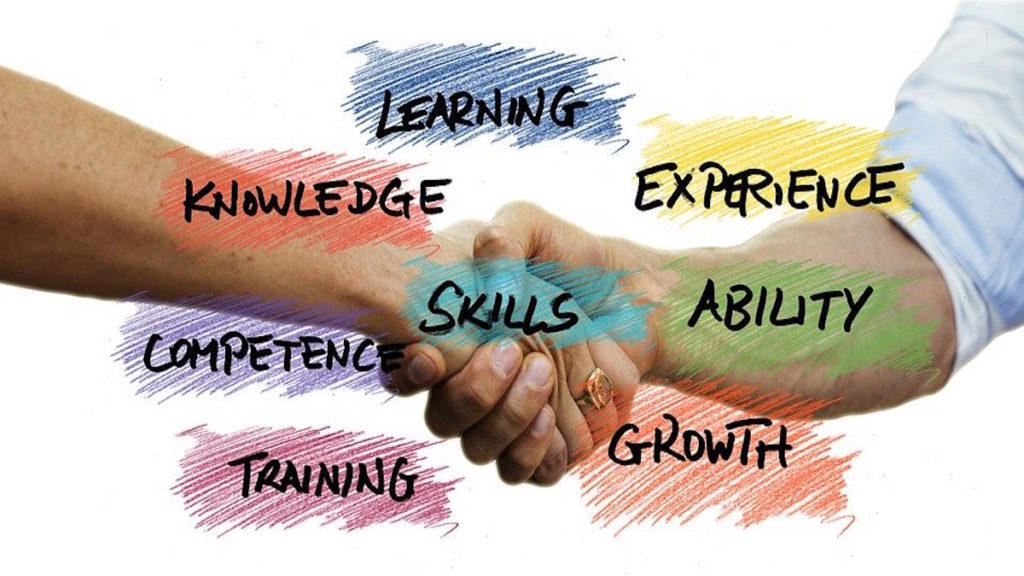Featured image by Geralt on PIxabay
Most people aspire for career growth. However, no matter what industry you are in, boosting your skills is one of the best ways to further grow your career. Improving these skills allows you to do your job more efficiently and become more desirable to employers.
These skills can be learned through a wide variety of methods, from school to online research. There are also services like OpEx Learning, which can provide on-demand courses to improve your skills. However, what type of skills should you work on to move up in your industry?
While there are many difficult skills that employers may find valuable, this guide is going to focus more on the soft skills necessary for any position. With that in mind, let’s look at some important skills you should work on to take your career to new heights.
RELATED ARTICLE: CLIENT COMMUNICATION: 10 WAYS TO CREATE A CONNECTION WITH CUSTOMERS
1. Communication Skills
No matter where you work or what position you have, communication will be a critical part of the job. You may need to communicate with bosses, coworkers, or even customers. This could be verbal, but also written communication as well. The way you communicate will set the tone for how people perceive you, and it can have an impact on your success.
Ineffective communication leads to a lot of wasted time and potentially a lot of confusion as well. When you communicate, make an effort to always be clear and concise, and when others are speaking or writing to you, be sure to give them your full attention. Communication isn’t only about talking, but also listening, as well. Of course, be sure to avoid the most common workplace communication mistakes, as well.
RELATED ARTICLE: HOSPITALITY INDUSTRY: ESSENTIAL SKILLS NEEDED FOR SUCCESS
2. Conflict Resolution and Problem Solving Skills
Anytime when there are multiple people working or collaborating on the same thing, a conflict is bound to occur at one time or another. The ability to quickly and effectively resolve these conflicts is a highly valuable skill. These skills allow you to maintain positive relationships, while working through issues without wasting too much time.
This indicates maturity and can help ensure your workspace continues to be a positive and healthy place for all. In a similar vein, you also want to be talented when it comes to problem solving. Dozens of problems will take place at your business every day, and being able to deal with them effectively is a mark of a good employee. Unexpected challenges can always rear their ugly heads, and you need to be prepared and capable of getting through them.
3. Resilience
At the workplace, things don’t always go as planned. Things may break, projects might fail, and other things can always go wrong. Another incredibly valuable skill is being resilient and being able to fight through these issues. Instead of complaining or digging in your heels, you need to be willing to pivot and go about things in a different way.
Adaptability is especially crucial today, as businesses are always undergoing changes. If you can show managers that you can push through anything and persevere, it can go a long way.
4. Being a Good Team Player
In most jobs, you will work as part of a team. So, you’ll need team building skills to be successful. You will need to build a positive relationship with these team members and work hand-in-hand with them on a variety of projects. Being a good team player is all about communicating well, listening to others, not blaming others and supporting every other member of the team.
Always be willing to lend a hand when a coworker is in need, and go above and beyond when you can. Good teamwork can also boost morale and help stop an office from being a toxic environment. If you cannot work with others effectively, it will hurt your chances of moving up in the business world.
Of course, there may be situations where you need to handle things individually, so don’t solely rely on others to carry you.
5. Time Management Skills
Most hiring managers are always on the lookout for people with good time management skills. Many projects or duties have strict deadlines, and not meeting them can hurt the overall efficiency and bottom line of a company. Take time to build up your time management skills, so you can finish up tasks and objectives effectively.
Thankfully, there are many ways to improve your time management skills. This includes prioritizing, keeping your space organized, keeping yourself accountable, minimizing distractions, and focusing on one thing at a time.
All these can help you ensure you are using your time wisely, which your employer will surely notice.
Final Thoughts
All of these skills can help you succeed and work and move up the corporate ladder. Be sure to work on them whenever an opportunity presents itself to keep these skills sharp.
RELATED ARTICLE: HOW TO FIX POOR EMPLOYEE MOTIVATION AT YOUR BUSINESS


